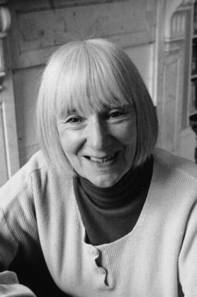A Quote by Stephen Jay Gould
Contrary to current cynicism about past golden ages, the abstraction known as 'the intelligent layperson' does exist - in the form of millions of folks with a passionate commitment to continuous learning.
Related Quotes
You can always tell gifted and highly intelligent people as they always turn to the past. Any young person who knows anything that happened before 1980, or 1990, or 2000 for that matter, is immediately someone who is intelligent, probably creative, maybe a writer. Nobody who is drawn to the past and learning about the past is not gifted.
The Hopi, an Indian tribe, have a language as sophisticated as ours, but no tenses for past, present and future. The division does not exist. What does this say about time? Matter, that thing the most solid and the well-known, which you are holding in your hands and which makes up your body, is now known to be mostly empty space. Empty space and points of light. What does this say about the reality of the world?
You can’t run away. The past will be only too happy to chase you —- in absolute, complete, and total earnest. Do you know why? Because they’re lonely. The past and memories are very lonely things. I don’t believe in God. Because he doesn’t have a fixed form. The past certainly does exist, even in a world where the future doesn’t have a fixed form. Even if it’s being colored by misunderstandings and delusions, a person’s past can’t be anything but the truth as long as he believes in it. If that’s what you base your actions or your way of life on, isn’t that like being god?
I always wanted to play with people's hair. I was really into 'The Golden Girls' and how big their hair was. I always had Barbies and Ken dolls, whose hair I wanted to play with and was always styling. I was very lucky - I never had to wonder what I was passionate about. I've always known that I'm really, really passionate about grooming.
For contemplation is both the highest form of activity (since the intellect is the highest thing in us, and the objects that it apprehends are the highest things that can be known), and also it is the most continuous, because we are more capable of continuous contemplation than we are of any practical activity.
I love things that are brave enough to be nakedly about what our lives are actually built of, when you're wild about someone, or you love something, or you're a fool, or you embarrass yourself. And I don't think the answer is cynicism. Cynicism is not the cure for sentimentality. Cynicism is its own form of sentimentality. For example, I tried to watch Breaking Bad. After three episodes, I thought, I don't like this guy. I don't care about him. But you can see why people tell themselves that they think this is real. But real doesn't mean bad.
But the past does not exist independently from the present. Indeed, the past is only past because there is a present, just as I can point to something over there only because I am here. But nothing is inherently over there or here. In that sense, the past has no content. The past - or more accurately, pastness - is a position. Thus, in no way can we identify the past as past




































